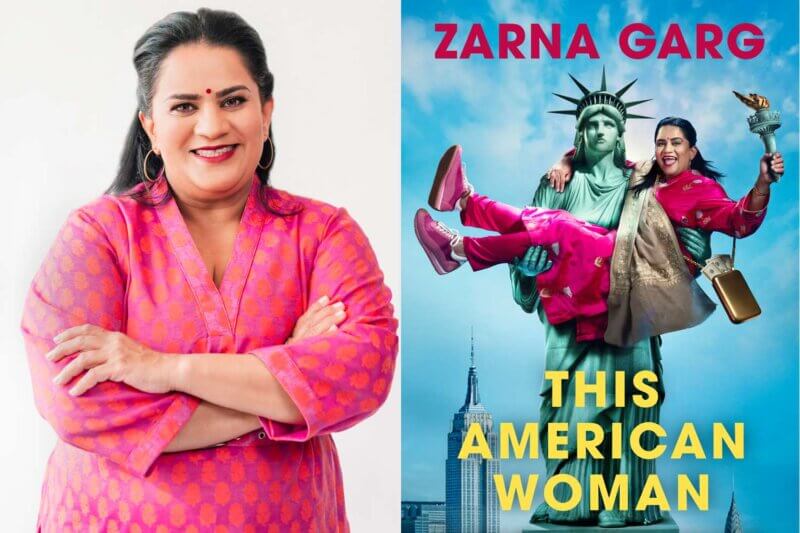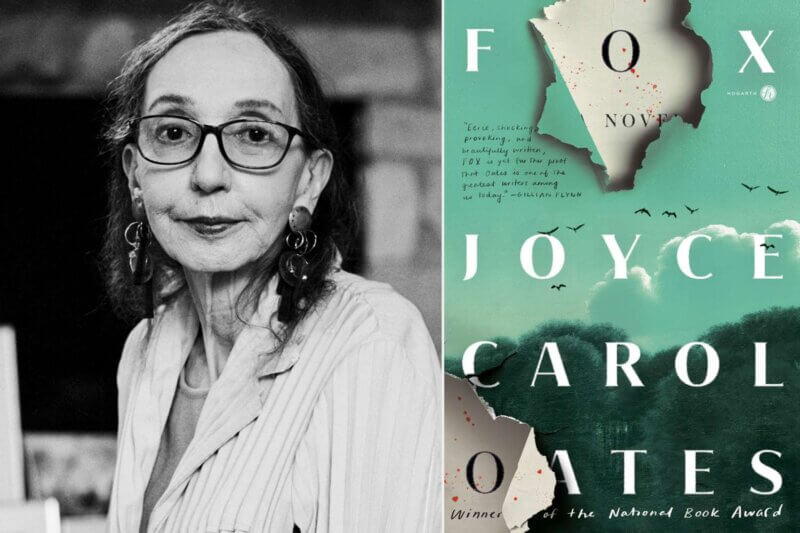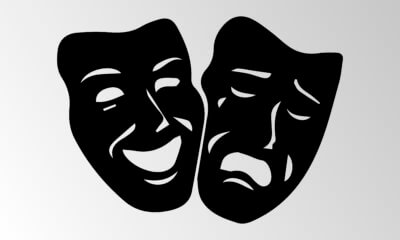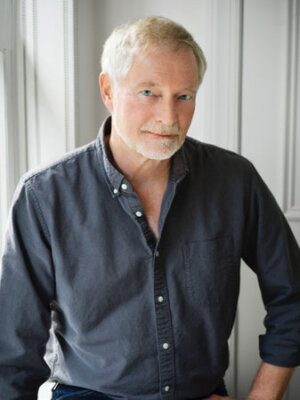One to make you laugh, one to make you lock doors and windows
Need a good book? A good laugh? I have just the thing: “This American Woman” by comedian Zarna Garg. Who is she? In her own words: “A little about me. I’m an immigrant. I’m here to take your jobs. Watch out Jerry Seinfeld!”
“I’m not your typical Indian woman,” Garg tells her audiences. She got into standup in her late 40s because, after 16 years as a stay-at-home mom, her kids encouraged her to try it. They told her, “All our friends want to hang out here because you make them laugh. Your stories are your thing.”
“If you hate my comedy, blame them,” she says.

“My kids are very impressed with themselves,” she says. “They found a way to get their mom out of the house on nights and weekends.”
Garg is licensed to practice law in NYC, but “I was really bad at it,” she says. “At one point all my clients were in jail. They were guilty, but that’s not the point.”
Garg is happily married to a man named Shalabh, an engineer whom she met on an Indian dating site; he was inexorably drawn to her humor and spirit.
“My husband, he’s a great guy,” she says. “You know, he went to a good college, has an amazing job. … He’s what you here would call a catch. I know this because his mother reminds me. Every day.”
“Turning her everyday life as an immigrant mom into comedy gold,” someone recently commented about Garg. It’s true. She’s published a memoir, currently hosts “The Zarna Garg Family Podcast” and is starring in her second comedy special on Hulu: “Practical People Win.” I think I also heard something about a movie.
“From the start, my mother knew I was different,” Garg said, in a recent interview with Marc Myers (Wall Street Journal). “In India, after a child is born, a Hindu priest customarily visits the hospital to chart a newborn’s astrological signs. My chart said, ‘This girl is going to talk and talk and talk.’ My mom was horrified. In India, this was really bad news.”
When Garg was 14, her mother contracted hepatitis, and though hepatitis is curable, she kept her illness to herself until it was too late. The day after she died, Garg’s father announced, “I’m done parenting. You need to get married.” (He was talking about arranged marriage.)
But Garg had been exposed to the American way of doing things through bootleg copies of “Family Ties,” “Growing Pains” and “Three’s Company,” which taught her, among other things, that getting married was a choice. Her choice.
Her father disagreed. He told her she must marry or leave. “So, I left,” says Garg. She stayed with school friends as much as she could, trying her best to keep up attendance at school despite no stable, predictable place to rest her head at night, but it was all extremely difficult, humiliating and exhausting. And so, upon graduating from high school, at age 16, Garg moved to Ohio to live with her sister and her sister’s husband.
But please don’t let this summary of comedian Zarna Garg’s early life gloss over for you the deep heartache, hardship and tragedy that was part of her growing-up years. Though she has attained amazing success as a comedian and real happiness in her personal life, Garg has had her fair share of misery and loneliness. For me, reading about her life, where she comes from and all that she has experienced, makes her current good fortune all that much more impressive and extraordinary.
The story Garg tells about meeting her husband is one of my favorite parts of this book. Besides being laugh-out-loud funny, it serves to highlight Garg’s indomitable authenticity as well as her fearlessness. If there were to be a moral tacked on to her story, I imagine it might be something like: “Be yourself. Be true to yourself. Don’t be afraid. Take risks. Work hard. Great things will happen.” (Of course, her moral would be much funnier.)
Garg currently resides in Manhattan’s Upper East Side with her husband Shalabh and their three children. Her father died two decades ago; they never reconciled. “He’d probably be disappointed in me, but I’ve been lucky,” she says.
She also says that though her kids “nudged” her into comedy, “nothing would have been possible without my sister and brother-in-law. They were the first to believe in me and love me just the way I am.”
Honest, inspiring, hilarious, at times heartbreaking, this is a really good book. Read it, or even better, listen to it on Audible, read by the author herself. So glad I stumbled upon this one. It’s a gem. Highly, highly recommend.
A very different read is Joyce Carol Oates’ “Fox,” which I picked up on the fly at the Harvard Square Bookstore a few months ago. The author, born in 1938, published her first book in 1963 (when I was 4 years old) and has since published 58 novels, along with numerous plays, novellas, short stories, poems and works of nonfiction.
Oates — winner of the National Book Award, among other prizes and accolades — grew up in Millersport, N.Y., in a working-class farming community, the eldest of three children. Her mother was of Hungarian descent; her father, a tool and die designer. Her youngest sibling, Lynn Ann, has autism and is institutionalized. Apparently, Oates has not seen her since 1971.
Though Oates describes her family as happy and close knit, her childhood, she says, was a “daily scramble for existence.” Her family tree contains, among its many branches and leaves, suicide, murder and attempted murder, which might help explain the strain of darkness in this, her most recent novel.

I don’t know if you’ve done the math here, but Oates was 87 years old when “Fox” hit the stands, which absolutely blows my mind, as the novel is technically so excellent and so detailed, so modern and so creepy and so addictively compelling. I know I say this a lot, but it really is true, you can ask my dogs, I could not put this book down.
Author Rebecca Makkai says that “Fox” is Oates’ “most compelling book in her remarkable career.” Michael Connelly says the book is “mesmerizing,” calling attention to the many depths of character explored by the novel, and the way Oates “captures the nuances of the choices people make.” Gillian Flynn says that reading “Fox” is “like being spellbound by a hypnotist who may not wish you well, who leads you, with a deceptively gentle hand, toward that dark forest you fear.”
Yes, I agree, this book is a creepy, compelling, addictive, hypnotizing, nuanced read. Without giving too much away, I will just say that it is about a charming, quietly charismatic English teacher — a little bit preppy, winning smile, great credentials — who has been hired to teach English to middle schoolers at the prestigious Langhorne Academy; and to make a long story short, he isn’t quite who he presents himself to be. Reminiscent of Patricia Highsmith’s Tom Ripley, he is a beautiful, alluring monster, winning hearts left and right while preying on his enamored, pre-pubescent female students.
This is one of the best books I’ve read all year. It’s a long one too — 651 pages. But if you are anything like me, you will whiz through it, while ignoring phone calls, texts, chores, invitations and bedtimes. Don’t say I didn’t warn you.
Brilliant. Read it. It will give you the creeps and hook and astound you. A little in the style of Donna Tartt’s “A Secret History” — “Fox” is that kind of dark. Clearly, age is no impediment to artistic genius. Highly recommend this one.
Related Stories
Popular Stories
If you enjoy The Charlotte News, please consider making a donation. Your gift will help us produce more stories like this. The majority of our budget comes from charitable contributions. Your gift helps sustain The Charlotte News, keeping it a free service for everyone in town. Thank you.
Andrew Zehner, Board Chair








